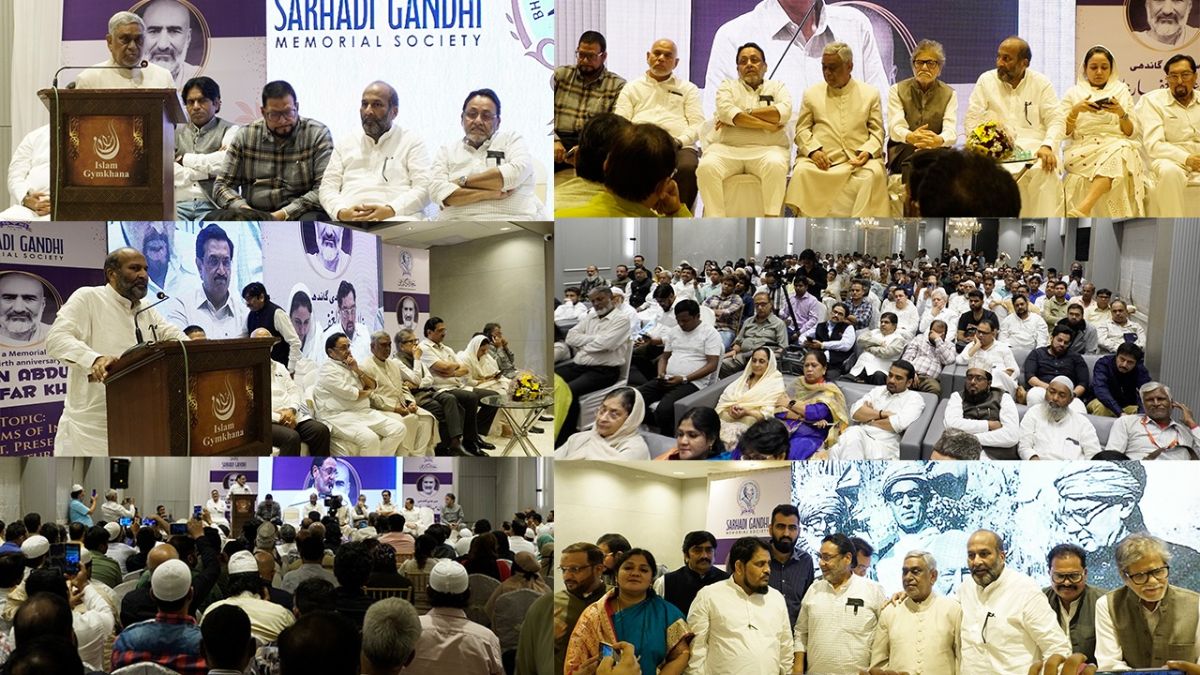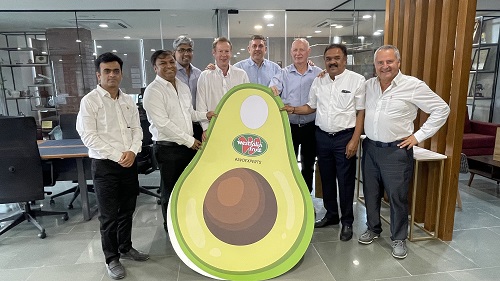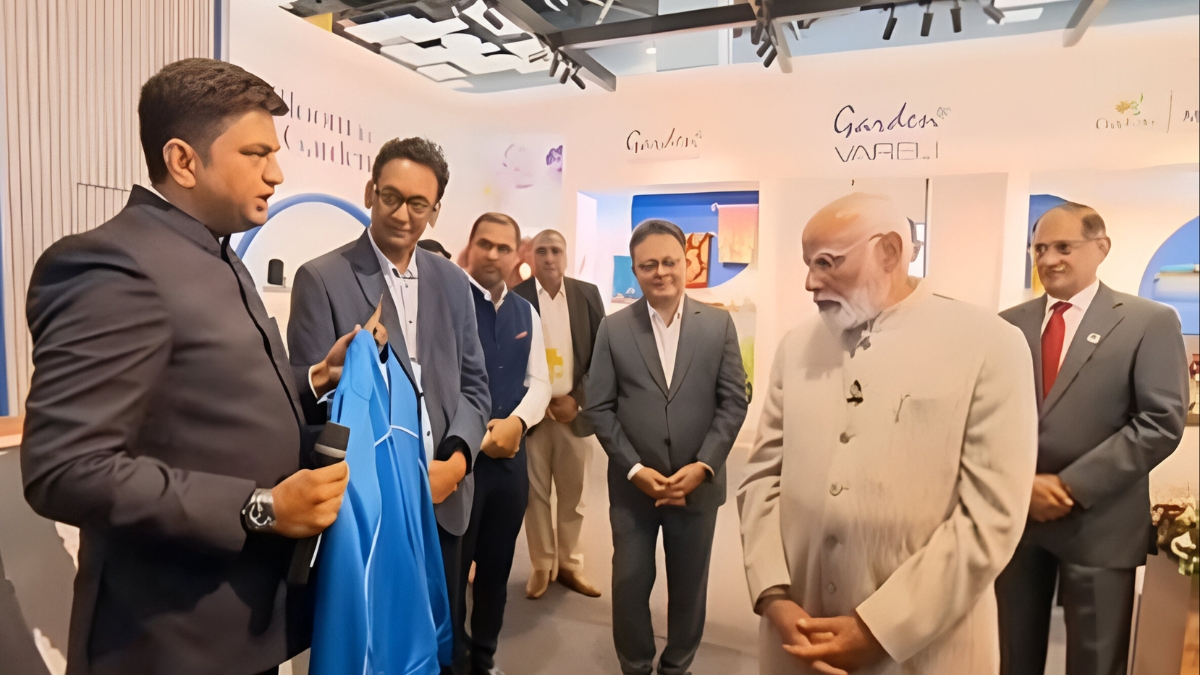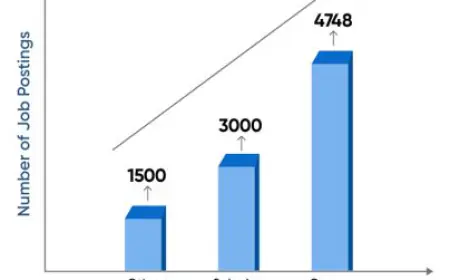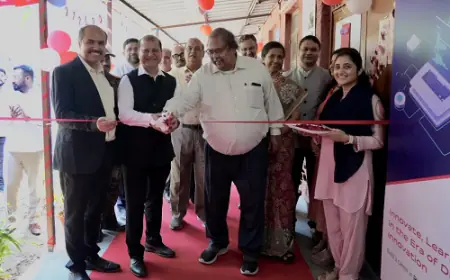Pan Oleo Energy Limited Charts a Solar-Powered Future, Progressing Beyond Biofuels in India
New Delhi, India : Pan Oleo Energy Limited, a prominent player in India's biofuel industry, is significantly advancing into the solar energy sector. The company has announced ambitious plans to develop a large-scale solar farm in Tamil Nadu, marking a significant diversification of its renewable energy portfolio. This strategic initiative emphasises Pan Oleo's commitment to a sustainable energy future and shows the significant potential of solar power to revolutionise India's energy sector. The company is currently focusing on solar energy in order to advance a more sustainable and environmentally friendly future, despite its established reputation in the biofuel industry. Pan Oleo Energy : A Foundation for Green Growth Pan Oleo Energy has been a key player in promoting the use of alternative fuels, producing high-quality biodiesel from diverse sustainable feedstocks. The company's primary strength is its innovative biofuel production approach, which involves the conversion of agricultural residues, non-edible oils, and even refuse organic oils and fats into high-quality biodiesel. A More Comprehensive Examination of Pan Oleo's Sustainable Fuels Research Pan Oleo Energy has strong research and development programs related to biofuel production as well as futuristic fuel production. The company has consistently invested in exploring new and more efficient ways to produce biofuels, focusing on: Feedstock Diversification: Pan Oleo's R&D team is continuously evaluating a wide range of potential feedstocks, including: Algae: Investigating the potential of algae as a high-yield, fast-growing source of biofuel, potentially cultivated on non-arable land. Jatropha and other non-edible oilseeds: Optimizing the cultivation and processing of these oilseeds to maximize yields and minimize environmental impact. Cellulosic Biomass: Exploring advanced technologies to convert agricultural residues like rice straw, wheat straw, and sugarcane bagasse into biofuels, unlocking a vast and underutilized resource. Process Optimization: Pan Oleo Energy is constantly refining its biofuel production processes to: Increase Efficiency: Maximizing biofuel batch yields while minimizing energy consumption and waste generation. Reduce Costs: Making biofuels more cost-competitive with conventional fuels through technological advancements. Enhance Quality: Improving the quality and performance characteristics of its biodiesel to meet the most stringent global standards. Enzyme Technology: The company is exploring the use of advanced enzyme technologies to enhance the efficiency and sustainability of biofuel production. Enzymes can act as biocatalysts, speeding up reactions and reducing the need for harsh chemicals. Enzymatic reactions can also be cost effective and economical. Glycerol Valorization: Glycerol is a byproduct of biodiesel production. Pan Oleo is actively researching ways to convert this byproduct into valuable chemicals and products, further enhancing the economic and environmental viability of its operations. The Solar Shift: Embracing the Power of the Sun Pan Oleo acknowledges the vast, unrealized potential of solar energy in India, despite the fact that its biofuel initiatives have established a solid foundation. The proposed solar farm is a significant advancement in the development of a diversified renewable energy portfolio in India, as it capitalizes on the swiftly decreasing costs of solar technology and the country's abundant sunshine. What are the advantages of solar energy? Environmental Imperative: Solar power is a clean, emission-free energy source that plays a crucial role in mitigating climate change and reducing air pollution, two of India’s most pressing environmental issues. Energy Security: Utilizing local solar energy diminishes India's dependency on imported fossil fuels, enhancing energy autonomy and shielding the country from unpredictable global energy markets. Economic Viability: The price of solar energy has significantly decreased in recent years, making it more competitive with traditional energy sources and providing long-term financial advantages. Government Support: The government's strong policy push for solar energy, including ambitious targets and attractive incentives, has created a favorable environment for investment and growth. Technological Advancements: Ongoing enhancements in photovoltaic (PV) technology are increasing efficiency and reducing prices, making solar electricity a more appealing alternative. A Solar-Powered Future: A Vision Shared Beyond Pan Oleo Pan Oleo Energy Limited's solar venture is a powerful microcosm of a much larger narrative unfolding in India and across the globe. It's a vision of a future where clean energy, particularly solar power, becomes the driving force o

New Delhi, India : Pan Oleo Energy Limited, a prominent player in India's biofuel industry, is significantly advancing into the solar energy sector. The company has announced ambitious plans to develop a large-scale solar farm in Tamil Nadu, marking a significant diversification of its renewable energy portfolio. This strategic initiative emphasises Pan Oleo's commitment to a sustainable energy future and shows the significant potential of solar power to revolutionise India's energy sector. The company is currently focusing on solar energy in order to advance a more sustainable and environmentally friendly future, despite its established reputation in the biofuel industry.
Pan Oleo Energy : A Foundation for Green Growth
Pan Oleo Energy has been a key player in promoting the use of alternative fuels, producing high-quality biodiesel from diverse sustainable feedstocks. The company's primary strength is its innovative biofuel production approach, which involves the conversion of agricultural residues, non-edible oils, and even refuse organic oils and fats into high-quality biodiesel.
A More Comprehensive Examination of Pan Oleo's Sustainable Fuels Research
Pan Oleo Energy has strong research and development programs related to biofuel production as well as futuristic fuel production. The company has consistently invested in exploring new and more efficient ways to produce biofuels, focusing on:
Feedstock Diversification: Pan Oleo's R&D team is continuously evaluating a wide range of potential feedstocks, including:
Algae: Investigating the potential of algae as a high-yield, fast-growing source of biofuel, potentially cultivated on non-arable land.
Jatropha and other non-edible oilseeds: Optimizing the cultivation and processing of these oilseeds to maximize yields and minimize
environmental impact.
Cellulosic Biomass: Exploring advanced technologies to convert
agricultural residues like rice straw, wheat straw, and sugarcane bagasse into biofuels, unlocking a vast and underutilized resource.
Process Optimization: Pan Oleo Energy is constantly refining its biofuel production processes to:
Increase Efficiency: Maximizing biofuel batch yields while minimizing energy consumption and waste generation.
Reduce Costs: Making biofuels more cost-competitive with conventional fuels through technological advancements.
Enhance Quality: Improving the quality and performance characteristics of its biodiesel to meet the most stringent global standards.
Enzyme Technology: The company is exploring the use of advanced enzyme technologies to enhance the efficiency and sustainability of biofuel production. Enzymes can act as biocatalysts, speeding up reactions and reducing the need for harsh chemicals. Enzymatic reactions can also be cost effective and economical.
Glycerol Valorization: Glycerol is a byproduct of biodiesel production. Pan Oleo is actively researching ways to convert this byproduct into valuable chemicals and products, further enhancing the economic and environmental viability of its operations.
The Solar Shift: Embracing the Power of the Sun
Pan Oleo acknowledges the vast, unrealized potential of solar energy in India, despite the fact that its biofuel initiatives have established a solid foundation. The proposed
solar farm is a significant advancement in the development of a diversified renewable energy portfolio in India, as it capitalizes on the swiftly decreasing costs of solar technology and the country's abundant sunshine.
What are the advantages of solar energy?
Environmental Imperative: Solar power is a clean, emission-free energy source that plays a crucial role in mitigating climate change and reducing air pollution, two of India’s most pressing environmental issues.
Energy Security: Utilizing local solar energy diminishes India's dependency on imported fossil fuels, enhancing energy autonomy and shielding the country from unpredictable global energy markets.
Economic Viability: The price of solar energy has significantly decreased in recent years, making it more competitive with traditional energy sources and providing long-term financial advantages.
Government Support: The government's strong policy push for solar energy, including ambitious targets and attractive incentives, has created a favorable environment for investment and growth.
Technological Advancements: Ongoing enhancements in photovoltaic (PV) technology are increasing efficiency and reducing prices, making solar electricity a more appealing alternative.
A Solar-Powered Future: A Vision Shared Beyond Pan Oleo
Pan Oleo Energy Limited's solar venture is a powerful microcosm of a much larger narrative unfolding in India and across the globe. It's a vision of a future where clean energy, particularly solar power, becomes the driving force of economies, transforming societies and safeguarding the environment. While Pan Oleo's planned solar farm is a significant step, it's important to recognize that it's part of a broader, more powerful movement towards a sustainable energy paradigm.
The statement from the company's spokesperson, "Our investment in this solar farm reflects our confidence in the long-term growth of the Indian solar market and our dedication to contributing to a cleaner, more sustainable energy landscape. While we remain committed to our biofuel business, we recognize that a diversified approach is essential to achieving a truly sustainable energy future," resonates far beyond the company itself. It embodies the increasing acknowledgment among companies, authorities, and people that a diversified renewable energy portfolio, centered on solar power, is not only advantageous but essential.
India's Solar Market: A Powerhouse of Potential
India's solar market is not merely growing; it's experiencing an unprecedented boom. Consider these statistics:
Installed Capacity: As of November 2023, India's installed solar capacity stood at over 72 GW. This represents a staggering increase from just a few megawatts a decade ago.
Global Ranking: India now holds the position of the third-largest solar market globally, reflecting the swift advancements achieved in recent years.
Ambitious Targets: The Indian government has set an ambitious target of achieving 280 GW of solar capacity by 2030. This demonstrates a firm commitment to solar as a key pillar of the country's energy strategy.
Falling Costs: The cost of solar power in India has plummeted in the past decade, making it one of the most cost-competitive sources of electricity in the country.
Investment Magnet: The Indian solar sector has attracted billions of dollars in investments, both domestic and foreign, reflecting the strong confidence in its growth potential.
Optimism in the Global Renewable Energy Market
The optimism surrounding renewable energy is not confined to India; it's a global phenomenon.
Record Investments: According to BloombergNEF, global investment in renewable energy reached a record $1.8 trillion in 2023, with solar and wind attracting the lion's share of the investments.
Dominance in New Capacity: The International Energy Agency (IEA) reports that renewables are expected to account for almost 95% of the increase in global
power capacity through 2026, with solar PV alone providing more than half.
Climate Commitments: The Paris Agreement, along with national commitments to reduce carbon emissions, is driving a global shift towards renewable energy.
Over 130 countries have committed to achieving net-zero emissions by mid-century, necessitating a rapid transition to clean energy sources.
Pan Oleo Energy Limited's journey to a diversified renewable energy player, embracing solar power, is emblematic of this global shift. The company's actions are not isolated; they are part of a larger, transformative movement that is reshaping the energy landscape in India and around the world.



